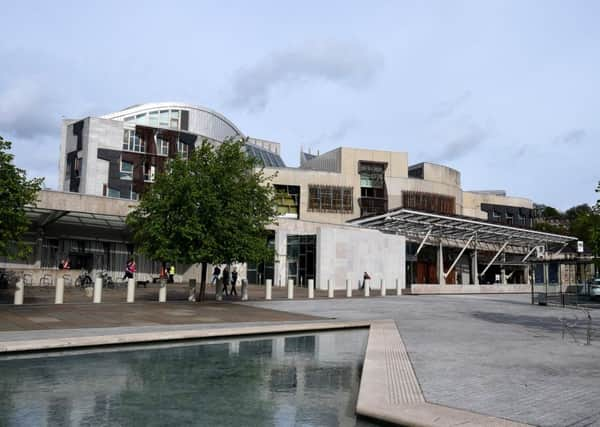Commercial property: Collaboration needed to boost development


It is a necessary task to ensure that we arrive at a planning system that is inclusive, respected by everyone and works in the long term public interest.
It is a lot to ask of any piece of legislation, but in this particular case these ambitions will be dealt a severe blow if third party or ‘equal’ right of appeal (TPRA) is introduced.
Advertisement
Hide AdAdvertisement
Hide AdInstead of ushering in a collaborative way of working and constructive early engagement, TPRA throws up the prospect of polarising opinion with decisions made by Scottish Ministers, not local communities, months or even years later.
Public trust in the planning system will not be achieved if every decision can be appealed, or where the views of more vocal objectors prevent all other points of view from being heard. People with no direct connection to a development could get involved without any consequence to themselves.
Likewise, developers and investors will not commit their time nor their funds where the end-game is mired in conflict.
An effective planning system has the ability to unlock development and deliver much needed infrastructure which would be a vital shot in the arm to Scotland’s economy.
Yet the investment required to build the business premises, homes and local amenities to allow our economy to grow is increasingly coming from overseas.
In Edinburgh for example, over 90 per cent of investment into the city’s new office stock comes from outside the UK.
So, in an environment where infrastructure projects in Scotland need to compete globally for every dollar, euro or yen, it is vital that investors have confidence that their infrastructure investments are proceeding through an efficient and well-resourced planning system.
The shape of the Planning (Scotland) Bill, when it finally emerges from the legislative process, will be a key determinant on whether Scotland can deliver crucial infrastructure projects, which in turn create jobs as well as the places that we all want to live and work.
Advertisement
Hide AdAdvertisement
Hide AdThe need for an efficient planning system is clearly recognised by the Scottish Government and its willingness to look at innovative funding arrangements for new development through mechanisms such as the Scottish National Investment Bank and the Building Scotland Fund are welcomed.
In addition to these new sources of capital, how the public and private sectors can better collaborate to unlock the potential of many development sites and projects across the country is, however, critical and needs the same kind of pragmatic thinking.
Any new planning system must ensure the views of communities are represented and at the Scottish Property Federation, we continue to favour engagement taking place as early in the process as possible.
TPRA is simply the wrong point of engagement.
Front loaded consultation with recognised community stakeholders is a key element of the full package of reforms and will help move towards an environment where people can say positively what they do want for their local area.
No planning application is ever undertaken lightly. Extending the appeals process will not improve planning efficiencies nor make the development planning process more equitable. It does, however, have the potential to scare off investors.
Mandy Catterall is government relations manager at the Scottish Property Federation